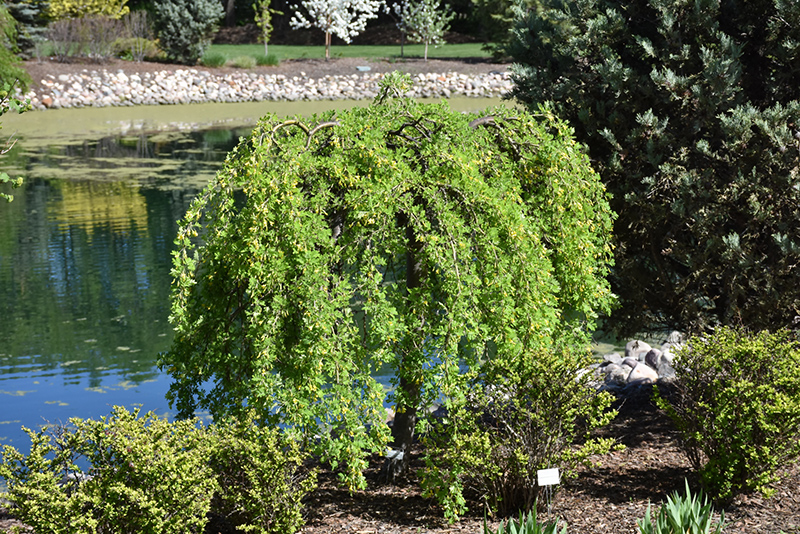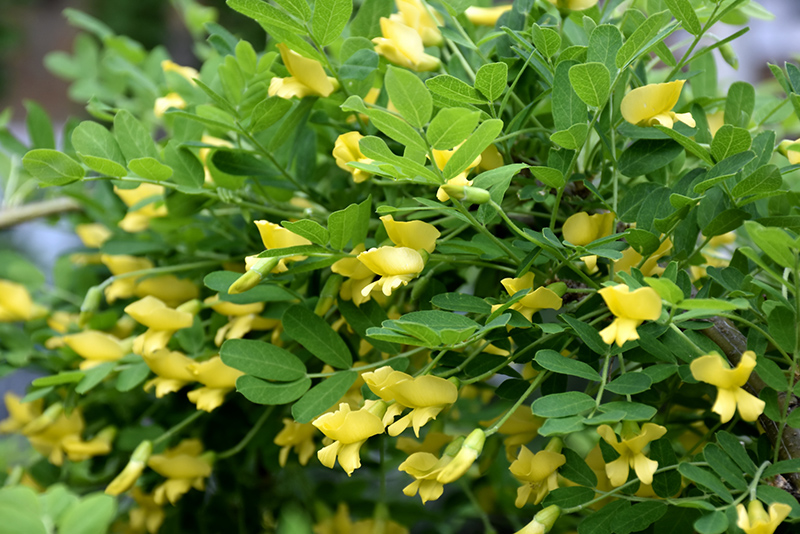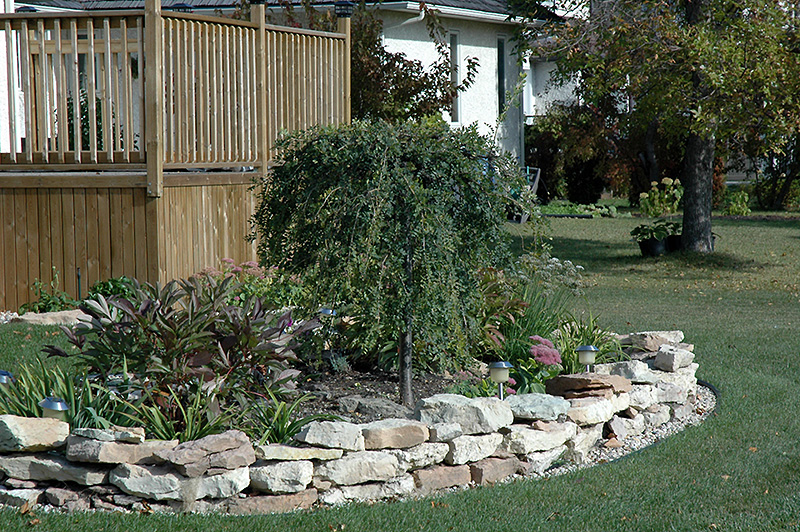Weeping Peashrub
Caragana arborescens 'Pendula'
Height: 15 feet
Spread: 10 feet
Sunlight:
![]()
![]()
Hardiness Zone: 2b
Other Names: Siberian Peashrub, Weeping Caragana
Description:
An interesting large shrub or small tree with a vigorously upright, weeping habit of growth and attractive yellow flowers in spring, great as a form accent in the garden or landscape; an incredibly tough, hardy and durable plant
Ornamental Features
Weeping Peashrub is primarily valued in the landscape for its cascading habit of growth. It has yellow pea-like flowers hanging below the branches in mid spring. It has green deciduous foliage. The round pinnately compound leaves turn yellow in fall. The smooth olive green bark adds an interesting dimension to the landscape.
Landscape Attributes
Weeping Peashrub is a deciduous dwarf tree with a strong central leader and a shapely form and gracefully arching branches. Its relatively fine texture sets it apart from other landscape plants with less refined foliage.
This is a relatively low maintenance dwarf tree, and should not require much pruning, except when necessary, such as to remove dieback. It has no significant negative characteristics.
Weeping Peashrub is ideal for use as a garden accent or patio feature, and is recommended for the following landscape applications;
- Accent
- Vertical Accent
- General Garden Use
Planting & Growing
Weeping Peashrub will grow to be about 15 feet tall at maturity, with a spread of 10 feet. It tends to be a little leggy, with a typical clearance of 2 feet from the ground, and is suitable for planting under power lines. It grows at a medium rate, and under ideal conditions can be expected to live for approximately 30 years.
This dwarf tree does best in full sun to partial shade. It prefers dry to average moisture levels with very well-drained soil, and will often die in standing water. It is considered to be drought-tolerant, and thus makes an ideal choice for xeriscaping or the moisture-conserving landscape. It is not particular as to soil type or pH, and is able to handle environmental salt. It is highly tolerant of urban pollution and will even thrive in inner city environments. This is a selected variety of a species not originally from North America.




